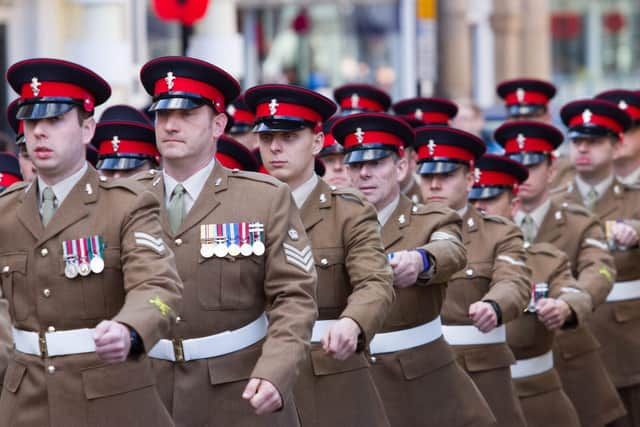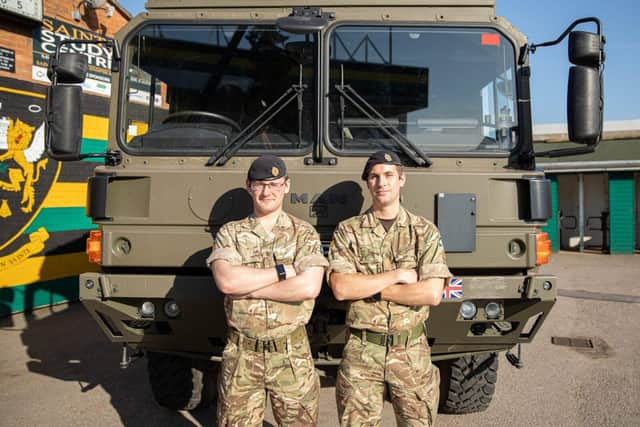The Andrew Lewer Column: Defence of the Realm: We need to change tack
and live on Freeview channel 276
On the face of it we look impressive, We are the second largest military spender within NATO and the 6th largest on earth. Our elite forces like the SAS, SBS, SRR, Parachute Regiment and Royal Marine Commandos are globally feared and respected in equal measure. They are highly trained, highly motivated, aggressive and very capable.
But elite regiments are only part of the overall force structure and when you begin to address our ‘major war capabilities’ like a Ukraine type war, alarm bells ring loudly. A recent Defence Committee report estimated that Britain can last only two months of fighting in a major war before running out of supplies and capability.
Advertisement
Hide AdAdvertisement
Hide AdSo why is this? Since the end of the Cold War successive governments have made use of the ‘peace dividend’ to reduce military spending and reallocate it to other domestic budgets like healthcare and social security. Some of this was necessary as the threat reduced, but the temptation to keep eating away at the budget to prop up domestic spending was overwhelming and the results have never been more clear. (Spoiler alert: This is true of other NATO countries' military budgets too).


In the 1980s we were spending just over 4% of GDP on defence but this more than halved over the subsequent decades. It has risen to 2.3% in the last couple of years, but alas the damage is done.
Army kit is very outdated and in short supply. We continue to operate 800 obsolete armoured vehicles dating back to the 1970s. 240 aging Challenger 2 tanks are being replaced with only 148 Challenger 3s. The RAF has reduced its fighter squadrons from 31 to 7 and the Royal Navy is decommissioning two warships early, leaving a 4-year gap because of manpower issues.Army numbers are plummeting to 72,500, the smallest number in 300 years. (72,500 is roughly the number of Russian dead in the first 6 months of the Ukrainian war.) Existing units of the British army are currently understaffed as well.
In procurement we have a terrible picture with a legacy of huge overspending and failing projects. Our tracked armoured vehicle Warrior upgrade has been cancelled leaving us without a viable alternative in the pipeline when Warriors are withdrawn in 2030. The Ajax tracked reconnaissance vehicle programme, a joint ‘off the shelf’ venture with Spain and Austria is costing £5.5 billion and has been left with huge delays and cost overruns because of insisting on over 1200 modifications to the vehicle design some of which are causing significant technical problems.
Advertisement
Hide AdAdvertisement
Hide AdThere are other challenges too numerous to write about here, but all is not lost. It took the eruption of a major war in Europe in 2022 to deliver the needed wake-up call to NATO members and indeed non-NATO members. Finland and Sweden have since joined and other nations are bolstering their defence capabilities.


Poland has been a stand-out example of what can be done. They have increased their military spending to 4% and are re-arming at an impressive rate. They are buying hundreds of tanks, armoured fighting vehicles and artillery systems from South Korea and the United States and planning to double their troop strength in the next 10 years.
We can do something similar if we have the will to address our shortcomings. Britain has pedigree in doing exceptional things in short timeframes to bolster our defences. The primary reason is not to engage in war but to make our enemies think twice. It is the ultimate 'invest to save' because, as I said, 'deterrence protects, weakness provokes'.